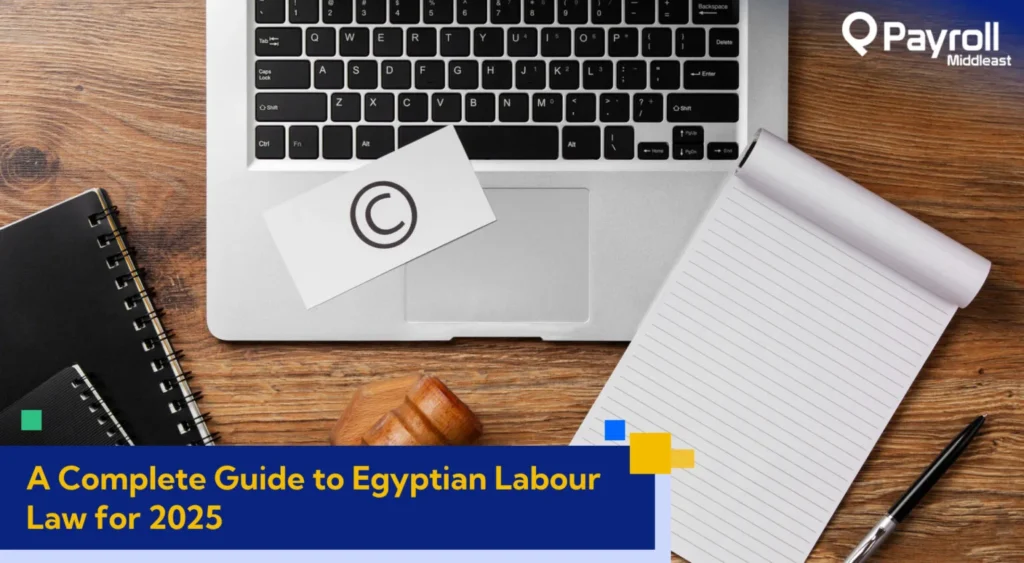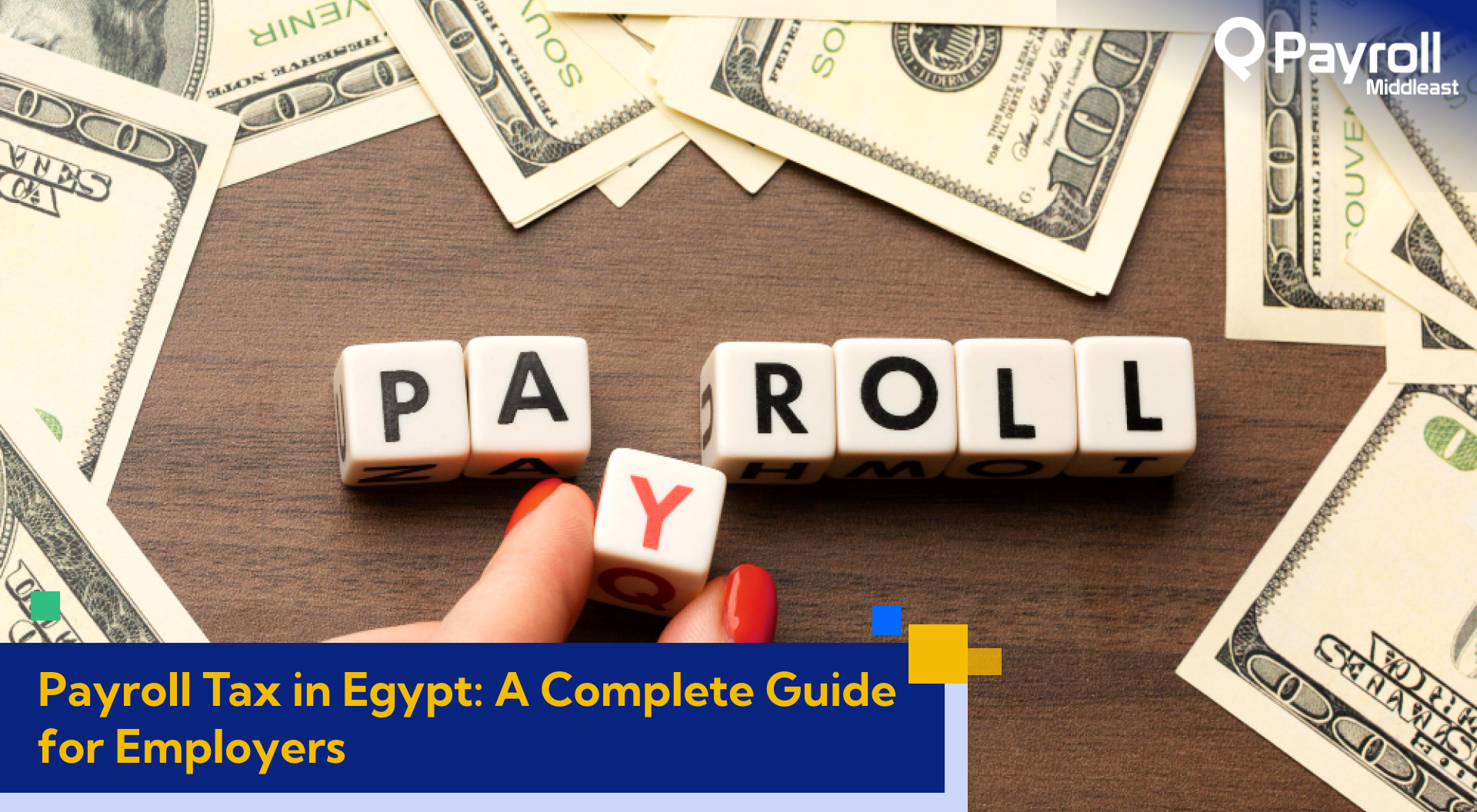Introduction
Dive into the world of Egyptian labour law for 2025 with clarity and confidence. This guide simplifies complex rules into practical insight. You’ll learn changes, rights, and responsibilities in a lively, easy‑to‑read way. An employer or an employee can benefit from this guide. In short, this is your road map. Let’s go!
Brief Overview of Egypt’s Labour Law Framework
Egypt’s Labour Law (Law No. 12 of 2003) lays out the basics. It addresses contracts, working hours, wages, leave, and termination. Recently, updates have aimed to protect workers’ rights while encouraging investment. This applies to Egyptian nationals and foreign employees working in the country.
Importance of Understanding Updated Laws in 2025
Egypt introduced key amendments in the current year. It focuses on digital employment contracts, flexible work, and streamlined dispute resolution. If you’re an employee or employer, knowing these changes helps both parties. Allowing them to stay compliant and avoid legal hiccups. If you’re working or hiring in Egypt, staying updated is a must.
Overview of Egypt Labour Law
The labour law of Egypt sets the rules for work relationships between employers and employees. The law covers contracts, working hours, leave, termination, and employee rights. Both locals and expat should know their rights under this law to avoid surprises at work.
Legal sources: Egypt Labour Law No. 12 of 2003 and any recent amendments
The foundation remains Labour Law No. 12 of 2003, now updated with fresh amendments and a whole new draft law taking effect September 1, 2025. These updates modernise definitions and add protections.
Key government bodies
- The Ministry of Labour (formerly the Ministry of Manpower) handles permits, inspections, and dispute resolution
- The Social Insurance Authority oversees contributions and benefits
- Labour courts, launching on October 1, 2025, to resolve employment disputes
Employment Contracts
There are four types of employment contracts:
- Permanent Contract
- Temporary Contract
- Part-time Contract
- Fixed Term Contract
Types of contracts: permanent, temporary, part‑time, fixed‑term
Egypt now officially recognises remote work, part‑time, job sharing, alongside permanent, fixed-term, and temporary formats under the new law.
Permanent contracts are an open-ended agreement with no set end date. These contracts offer job stability and full employee benefits. Temporary contracts are a short-term agreement for specific tasks or projects. They usually last less than one year. Part-time contracts are those where the employee works fewer hours than a full-time role. These agreements have pay and benefits adjusted accordingly. The Fixed-Term contract is a contract with a clearly defined start and end date. They are used for seasonal or project-based work.
Mandatory contract elements
Every contract must clearly state: job title, working hours, probation period, salary, benefits, insurance enrolment, and termination terms.
Probation period rules
Probation can’t exceed three months. During this period, employers must explain requirements and provide a fair trial; employees can exit with minimal notice.
Working Hours and Overtime
Egypt has different working hours and overtime regulations as per its labour law. Let’s explore the working hours, overtime rules, and other details.
Standard working hours per week
The law maintains a standard 48‑hour week (8 hours/day over six days). Some sectors may opt for flexible hours under new regs.
Overtime rules and compensation
Overtime pays at 150% of the hourly rate on weekdays, and up to 200% for weekends or holidays. Employers must record and compensate all extra hours.
Night shifts and weekend work
Night work (after 10 pm) and weekend shifts earn higher rates. For clarity, employers must post policies and track hours strictly.
Wages and Minimum Salary
As per Egyptian labour law, the public, private, and temporary workers have different pay. It is decided as on their level of qualification, skill sets, and experience. For instance, the minimum salary of employees is discussed below.
Minimum wage updates for 2025
- Private sector employees now earn at least EGP 7,000/month, effective 1 March 2025
- Public sector minimum matched at EGP 7,000/month from July 2025
- Temporary workers must receive at least EGP 28/hour
Payment frequency and methods
Employers must pay monthly in cash. They can also issue a cheque or bank transfer. Payslips must state gross/net pay, deductions, overtime, and insurance contributions.
Deductions and penalties
Only legal deductions allowed: income tax, social insurance contributions. Employers who violate wage rules face fines. It ranges from EGP 100 to EGP 500 per employee, doubled for repeat breaches.
Termination of Employment
As an employee, you must know about the termination grounds. Helping you to stay aware and well-prepared before any difficult situation arises.
Legal grounds for termination
Employers may dismiss for:
- Gross misconduct (fraud, theft, violence)
- Poor performance after due process
- Economic downsizing or retirement
Employees may resign at any time, with the right to rescind the resignation within 10 days under the new law.
Notice periods
Indefinite contracts require a 3‑month notice, regardless of service length, starting September 2025. Under the old law, the notice period is 30‑90 days. However, it depends on contract terms.
Severance pay and end‑of‑service benefits
| Scenario | Severance / Benefit |
| Fixed‑term ≥ 5 years | 1 month’s pay per year of service |
| Economic termination | ½ month per year for the first 5, then 1 month/year after |
| Summary dismissal or retirement | 1/12 of monthly compensation per year of service |
If an employee believes dismissal is unfair, they can file a claim. Labor courts can order reinstatement or compensation, including up to two months’ salary per year of service.
Social Insurance and Benefits
The workers in Egypt have been granted social insurance to give them relief in case of any sudden need. Several benefits are also offered to employees who are working in Egyptian companies.
Employer and employee contribution rates
From 1 January 2025, the minimum social insurance salary is set at EGP 2,300. However, the maximum is capped at EGP 14,500. Social insurance covers pensions, medical, disability, and unemployment.
Coverage (pensions, medical, unemployment, etc.)
- Sick leave benefits: 100% pay for 3 months and 85% for 6 months. Then, 75% for the next 3 months, an upgrade from the former schedule
- Increased maternity leave: now 120 days, usable three times per career
- Paternity leave: 1 paid day per eligible child, for up to three children
Registration requirements
Employers must register all workers with the Social Insurance Authority. They must submit contribution updates when wages change, especially upon reaching minimum or maximum thresholds.
Compliance Tips for Employers
Both employees and employers need to comply with Egyptian labor laws. Discover how you can comply with the laws smartly as an employer. We’ve shared some of the top tips to help you achieve compliance. You’ll also learn the common mistakes that you should avoid.
Checklist for legal compliance
- Update employment contracts to reflect the new law
- Align salaries with EGP 7,000 minimum and hourly rate for temps
- Register all employees for social insurance within the correct salary bands
- Implement overtime policies and record extra hours accurately
- Secure appropriate work permits for foreign employees
- Include provisions for remote, part‑time, flexible work
- Prepare for labour court filing procedures starting October 2025
Common mistakes to avoid
- Paying below the legal minimum wage or excluding overtime
- Skipping mandatory annual increments (minimum 3% or EGP 250)
- Ignoring new resignation withdrawal rights or notice rules
- Failing to calculate the correct severance or end‑of‑service benefits
- Neglecting updated maternity or paternity entitlement
HR documentation best practices
- Use clear contracts with defined terms, duration, and probation
- Maintain payslips, timesheets, leave records, and grievance logs
- Store resignation letters with withdrawal windows noted
- Document training fund contributions (0.25% wage or E£10‑30 per employee)
Conclusion
Egypt’s labour reforms of 2025 deliver clarity, equity, and fresh flexibility. You now know your rights around minimum wage, contracts, working hours, termination, and benefits. Employers can stay compliant using clear documentation, up‑to‑date payroll, and adapted HR policies. Employees gain stronger protections, smoother resignations, more leave, and fairer severance.
Stay tuned: regulations roll out through September 2025, and labour courts launch on October 1. Keep policies updated, consult legal counsel, and ensure fair treatment. The labour law in Egypt is evolving, and you’re now ready to get it right.
Need help? Hire the professional consultants from Payroll Middle East. Their experts help you understand better about the Egyptian labour law better. This way, you can comply with them closely without any misunderstanding.
FAQs:
What are the key changes in Egyptian labour law for 2025?
The 2025 Labour Law introduces major updates: a mandatory 3% annual salary increase, recognition of remote and flexible work, stronger anti-harassment protections, extended maternity and paternity leave, and clearer rules for fixed and unlimited contracts.
Who does the Egyptian labour law apply to?
The law applies to all private-sector employees in Egypt. Public sector and domestic workers follow separate regulations.
What are the working hours and overtime regulations under the 2025 labour law?
Working hours remain capped at 8 hours per day or 48 hours per week, excluding breaks. Overtime must be voluntary and compensated either by extra pay or a day off. Pregnant employees receive a one-hour daily reduction and are exempt from overtime after childbirth.
How does the law regulate employment contracts in Egypt?
Employment contracts must be written in Arabic and provided in multiple copies for both parties and authorities. Unless clearly defined as fixed-term, a contract is treated as unlimited-term. Fixed contracts automatically convert to unlimited if renewed continuously.
What are the rules around employee termination and severance pay?
Employers must give a three-month notice before termination of an unlimited contract. If a fixed-term contract is ended early, the employee is owed one month’s salary per year of service. Using pre-signed resignation forms for dismissal is strictly prohibited.





